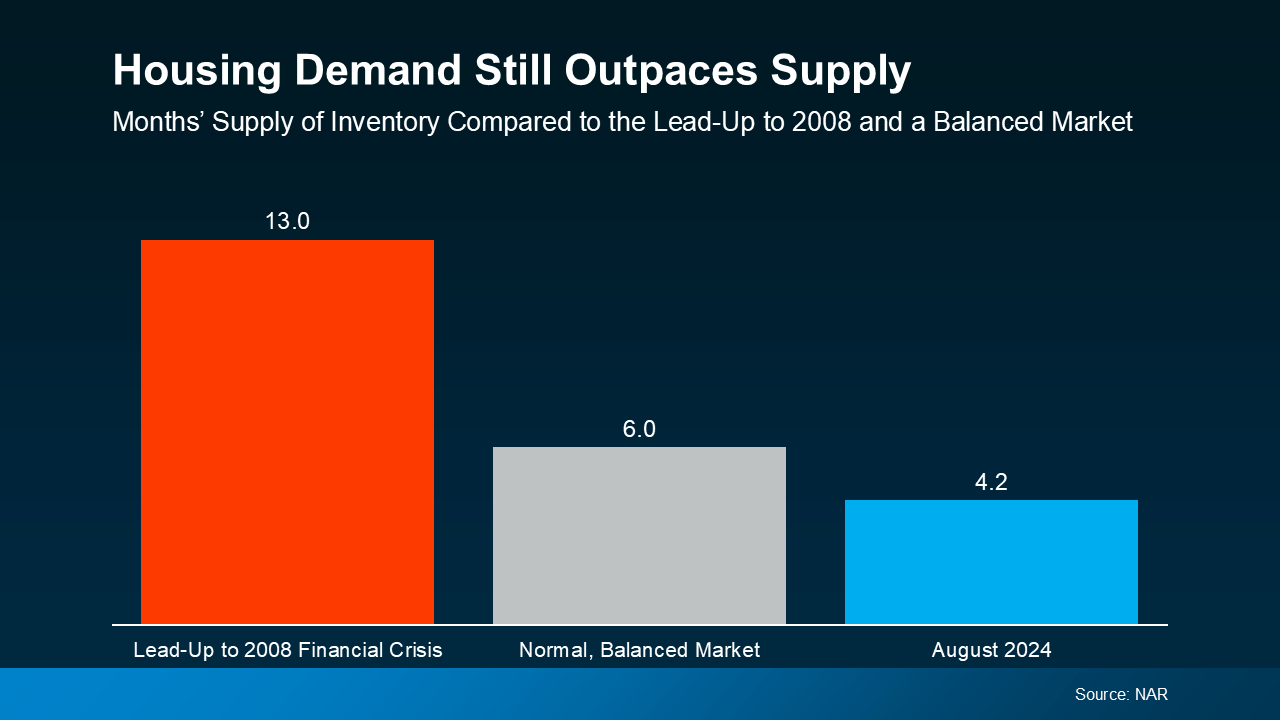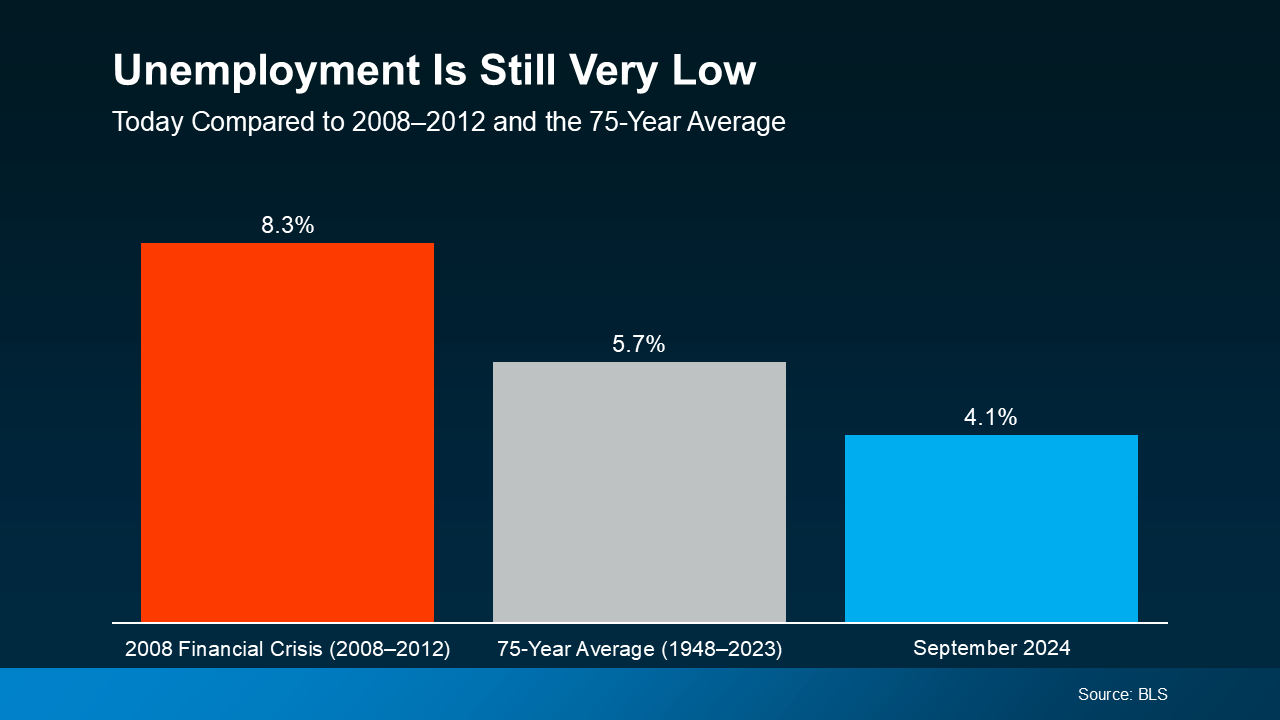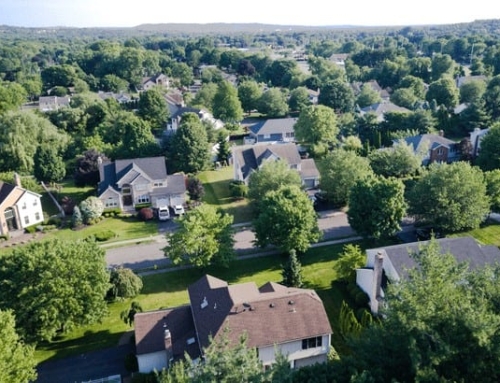Two Reasons Why Seattle Housing Market Won’t Crash
October 11, 2024
You may have heard recent discussions about the economy and concerns over a possible recession, sparking fears of a housing market crash. If you’re worried, here’s some good news: there’s no need to panic. The current housing market is far from the conditions that led to the 2008 crash. Today, housing demand remains higher than supply, and unemployment rates are still low, making a housing market crash highly unlikely. So, if you’re keeping an eye on real estate trends, rest assured that the housing market is in a stable position right now.
Real estate journalist Michele Lerner says:
“A housing market crash happens when home values plummet due to a lack of demand for homes or an oversupply.”
With that definition in mind, here are two reasons why this just isn’t on the horizon.
1. Demand for Homes Is Higher than Supply
One of the biggest reasons the housing market crashed back in 2008 was an oversupply of homes. Today, though, it’s a very different story.
It’s a general rule of thumb that a market where supply and demand are balanced has a six-month supply of homes. A higher number means supply outpaces demand, and a lower number means demand outpaces supply. The graph below uses data from NAR to put today’s situation into context:
 The graph compares housing supply during three different periods of time. The red bar shows there were 13 months of supply before the 2008 crisis, which was far too much. The gray bar shows a balanced market with six months of supply, for context. And the blue bar shows there are only 4.2 months of supply today.
The graph compares housing supply during three different periods of time. The red bar shows there were 13 months of supply before the 2008 crisis, which was far too much. The gray bar shows a balanced market with six months of supply, for context. And the blue bar shows there are only 4.2 months of supply today.
In simple terms, there are currently more buyers than available homes, meaning demand is outpacing supply. When demand exceeds supply, home prices tend to remain steady or increase, which is the opposite of what happens during a housing market crash. This imbalance between housing supply and demand is helping to keep the real estate market stable and support rising home values.
It’s crucial to understand that housing inventory levels vary from market to market. While some areas may have a more balanced supply, others could face a slight oversupply, which can impact home prices locally. However, the majority of real estate markets continue to experience a shortage of homes, keeping demand high and home prices steady. Staying informed about your local housing market trends is essential for making smart real estate decisions.
Lawrence Yun, Chief Economist at the National Association of Realtors (NAR), says:
“We simply don’t have enough inventory. Will some markets see a price decline? Yes. [But] with the supply not being there, the repeat of a 30 percent price decline is highly, highly unlikely.”
2. Unemployment Is Still Low
When people are unemployed, they’re more likely to have trouble making their mortgage payments and may be forced to sell or face foreclosure. That was a big problem during the 2008 financial crisis. Today, the employment situation is much more stable (see graph below):
 Again, this graph shows three different periods of time, but this one is the unemployment rate. The red bar represents the 2008 financial crisis when unemployment was very high at 8.3%. The gray bar shows the 75-year average of 5.7%. And the blue bar shows the unemployment rate today, and it’s much lower at just 4.1%.
Again, this graph shows three different periods of time, but this one is the unemployment rate. The red bar represents the 2008 financial crisis when unemployment was very high at 8.3%. The gray bar shows the 75-year average of 5.7%. And the blue bar shows the unemployment rate today, and it’s much lower at just 4.1%.
Currently, most people are employed, earning steady incomes, and making their mortgage payments on time. This is a key reason why the wave of foreclosures seen in 2008 is unlikely to repeat. With strong employment levels, more potential buyers are in a position to purchase homes, fueling housing demand and keeping upward pressure on home prices. This stable financial environment is helping to prevent any major disruptions in the housing market.
Today’s Housing Market Is Stronger than in 2008
While it’s understandable to be concerned when you hear talk of a recession and economic uncertainty, but know this: the housing market is in a much better place than it was in 2008. According to Rick Sharga, Founder and CEO at CJ Patrick Company:
“Literally everything is different about today’s housing market dynamics than the conditions that led to the housing crisis.”
Bottom Line
The housing market is significantly stronger than it was during the 2008 crash, but it’s crucial to remember that real estate trends vary by location. Local housing market conditions can differ greatly, so while the overall market may be stable, your area’s real estate market might face unique challenges or opportunities. Staying informed about local real estate trends is key to making smart decisions in today’s housing market.
It’s always a smart move to stay informed about your local real estate market. Understanding how national trends impact your specific area is key to making informed decisions. If you have any questions or want to discuss how current housing market conditions are affecting our local market, don’t hesitate to reach out for expert advice. Staying updated on local real estate trends can help you navigate the market with confidence.




